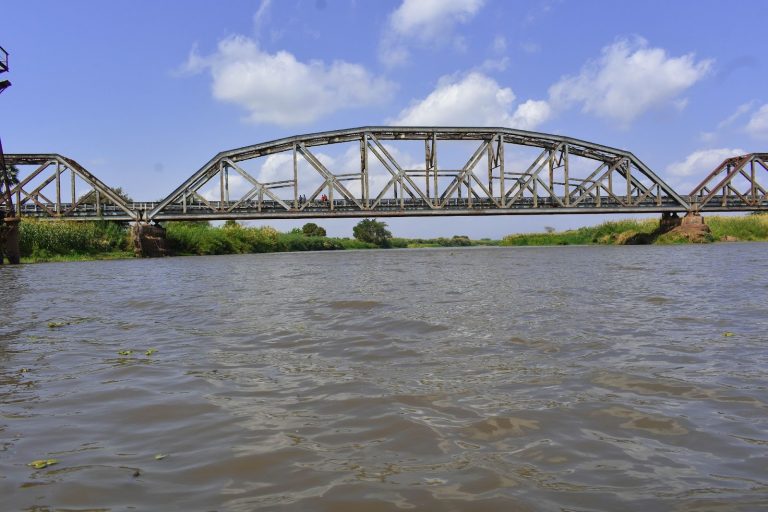Part of the Mulanje Mountain – Pic Screenshot from Local Me Travel By Gregory Gondwe The serene and majestic Mulanje Mountain, often called Malawi's “Island in the Sky,” stands at the centre of a growing controversy over proposed bauxite mining operations by Akatswiri Mineral Resources. This project has sparked significant concern among local communities, environmentalists, and legal experts, all questioning the initiative's legitimacy and potential environmental impact. As the debate unfolds, it has become a high-stakes battle over the future of one of Malawi's most cherished natural treasures, a UNESCO Biosphere Reserve. The Inception of Controversy In December 2023, the quiet and picturesque district of Mulanje was shaken by the sudden arrival of heavy machinery on the slopes of Mulanje Mountain. This mountain, celebrated for its unique biodiversity and as a critical water source for the region, was unceremoniously introduced to the harsh realities of industrial development. Local communities, who were neither informed nor consulted about the mining operations, were left in a state of shock. Emmanuel Elija, a long-time resident and tour guide, vividly recalls the confusion that swept through the community as machinery was transported up the mountain. “We were surprised to see machinery for mining being moved up the mountain,” Elija says, his voice still tinged with disbelief. The community’s surprise soon turned into anger and suspicion as it became evident that Akatswiri Mineral Resources had not secured the necessary approvals from the Ministry of Mining, including a critical Environmental Impact Assessment (EIA). Despite the local population's concerns, the machinery remained on the mountain for 20 days before adverse weather conditions forced Akatswiri Minerals to halt operations temporarily. However, the community's anger did not subside with the retreat of the machinery; rather, it fuelled further inquiries into the legitimacy of the project and the potential risks it posed to the environment and their livelihoods. Mounting Community Resistance As the residents of Mulanje District dug deeper into the circumstances of the mining operations, they uncovered more troubling details. Akatswiri Minerals had not only failed to secure a mining licence but had also bypassed critical legal procedures, including the mandatory EIA. This discovery only deepened the community’s sense of betrayal. Elija, reflecting on the unfolding situation, vehemently denied any rumours that the people of Mulanje had accepted the mining activities. “In the real sense, all communities, and chiefs in Mulanje District have been saying no to the mining activities on the mountain,” he asserted. The local population remains united in their opposition, recognizing the mountain's critical role in their daily lives and the potential dangers posed by the mining activities. “The mountain is a source of many rivers in the district,” Elija noted, listing perennial rivers like Lichenya, Likhubula, Ruo, and Thuchira, which provide drinking water for local communities and even as far as Blantyre. The Chambe Basin, where Akatswiri Minerals operated, is a key source for the Likhubula River, making the area’s protection even more crucial. The mountain’s natural resources are not just vital for sustenance but also the region's cultural and ecological heritage. The Environmental Stakes Mulanje Mountain is not just an economic resource; it is a living testament to Malawi's natural beauty and ecological importance. The mountain’s designation as a UNESCO Biosphere Reserve underscores its global significance, both as a biodiversity hotspot and as a crucial water catchment area for the surrounding region. The potential environmental impact of bauxite mining on this delicate ecosystem is a central concern for both local communities and environmentalists. Bauxite, the primary ore for aluminium production, requires extraction processes that could lead to soil erosion, water contamination, and deforestation—risks that could have devastating consequences for the region’s water supply and biodiversity. Carl Bruessow, Executive Director of the Mulanje Mountain Conservation Trust (MMCT), is among those raising alarms over the project. “No Environmental Impact Assessment (EIA) was conducted,” Bruessow asserted, pointing to the Environmental Management Act, which mandates an EIA for any project in protected areas like Mulanje Mountain. “The failure to conduct this assessment has provoked outrage among environmentalists and local communities who rely on the mountain's resources.” Bruessow further criticized the company’s approach to local communities, marked by intimidation and coercion. “They came with guns, bullying people into silence,” he recounted, highlighting the hostile atmosphere surrounding the project. “Public consultations, which are meant to engage the community and gather input, were reduced to mere formalities, with dissenting voices ignored or suppressed.” Beyond the legal and procedural violations, Bruessow emphasized the irreversible environmental impact the mining could have on Mulanje Mountain. “Mining on Mulanje Mountain and sustainable water supply cannot coexist,” he warned. “The destruction of this habitat for short-term economic gain would be irreversible. The mountain is not only a critical resource for agriculture and daily living but also a unique ecological treasure, home to species found nowhere else on earth.” Political Underpinnings and Allegations of Corruption The controversy is further complicated by allegations of political interference and corruption. According to Bruessow, Hilton Banda, associated with Akatswiri Minerals, claims that the company is owned by the son of Malawi’s President, suggesting potential conflicts of interest and corruption. “He tells people the company belongs to the President’s son, which, in Malawi, means it belongs to the President,” Bruessow explained. When approached by the Platform for Investigative Journalism (PIJ), Nick Chakwera, the President’s son, denied any involvement. “I’m not involved whatsoever,” he stated, suggesting that inquiries be directed to the company instead. However, these denials have done little to dispel the cloud of suspicion hanging over the project. Elija also raised concerns about the ownership and backing of Akatswiri Minerals, alleging that Nick Chakwera is one of the owners. While the community lacks official documents to substantiate this claim, the suspicion alone has intensified local opposition. "President Chakwera is aware of all this, and he is the one who has given the directive to the company to do mining activities on the mountain,” Elija alleged. The frustration is further compounded by the lack of transparency and communication from local authorities. Despite repeated requests, the District Commissioner for Mulanje has yet to organize a promised meeting where Akatswiri Minerals would address the community’s concerns. “We doubt that such a meeting will ever take place,” Elija said, noting that many local chiefs have expressed opposition to the mining but feel pressured to comply with government directives. “It feels like the government is pushing this project through, regardless of what the people want.” Mulanje District Forestry Officer Newton Sodala told PIJ that these issues are being handled by the principal secretary of Natural Resources Dr Mkungula. He also referred PIJ to the Director of Mines and the Director of Forestry. The Director of Forestry District Commissioner Deflects Responsibility When asked about the council’s involvement in the project, Mulanje District Commissioner David Maxwell Gondwe distanced his office from the controversy. “As a council, mining issues—licensing and approvals—are outside our mandate,” he said. However, he did acknowledge the concerns raised by local leaders and NGOs about the council potentially providing leeway for the mining activities. Initially, Gondwe promised to look into the matter but later referred all inquiries to the Principal Secretary for the Department of Forestry. This deflection of responsibility has not assuaged the concerns of the community. Local leaders argue that the council has, in practice, enabled the mining project by not taking a stronger stance against it. The lack of clear communication from the district authorities has only exacerbated the situation, leaving the community feeling abandoned by those meant to represent their interests. The Company’s Defence: Claims of Compliance In response to the growing scrutiny, Hilton Banda, the Owner and Executive Chairman of Akatswiri Minerals, defended the company’s actions, dismissing the accusations as baseless. “We are very professional when doing our projects and work,” Banda insisted, emphasizing that all procedures had been followed. He expressed frustration with the media’s portrayal of the situation, accusing journalists of spreading lies without verifying facts. “It's very unfortunate and unprofessional that you [PIJ] started writing lies about our project without asking relevant authorities.” Banda challenged PIJ to verify the legality of the project with the relevant authorities, including the Ministry of Mines, the Malawi Environmental Protection Authority (MEPA), and the Forestry Department. He claimed the project had been approved long ago, and any current opposition was fuelled by misinformation. “If you think we have done anything wrong or not according to the law, you can bring your issues to the Mines department or MEPA,” he said, adding, “You don't need to school us here!” Banda also downplayed the role of foreign influence in the opposition to the project, stating, "This project, when it was developed by the white, no issues came, but because it's done by Malawians, now these white men want to use PIJ who know nothing about mining." He was adamant that Akatswiri Minerals had followed all necessary procedures, starting the project in 2018 with full approval from the relevant bodies. Banda suggested that those opposing the project were being manipulated by outside interests who do not have Malawi’s best interests at heart. “We can’t allow such stupidity to happen in our country,” he challenged further, emphasizing the potential economic benefits of the project for Malawi. The Legal and Environmental Framework Malawi’s legal frameworks for environmental protection are well-established, with the Environmental Management Act (EMA) of 1996 and the Guidelines for Environmental Impact Assessment (EIA) playing pivotal roles. These guidelines, issued by the Environmental Affairs Department (EAD) in 2011, are designed to ensure that development projects like mining do not proceed without thorough environmental assessments and public consultations. The Guidelines for Environmental Impact Assessment emphasize that any project likely to have significant environmental impacts must undergo a rigorous EIA process. This process involves identifying potential environmental and socio-economic impacts, consulting with stakeholders, and proposing mitigation measures. The guidelines are clear: no project should proceed without the EIA's approval, and public participation is a crucial element in this process. Despite these legal requirements, it appears that the EIA process for the Mulanje mining project may have been bypassed or inadequately conducted. The community's surprise at the commencement of mining activities suggests that the essential public consultations were either insufficient or nonexistent. The Environmental and Social Management Plan (ESMP) prepared by Akatswiri outlines the company’s approach to managing the environmental and social impacts of the bauxite mining project. The plan details how Akatswiri intends to mitigate potential negative effects on the environment and local communities while maximizing the project's economic benefits. Environmental Impact Mitigation The ESMP identifies several potential environmental impacts associated with the project, including deforestation, soil erosion, water pollution, and biodiversity loss. To address these concerns, Akatswiri has proposed a series of mitigation measures: Selective Clearing and Reforestation: The company plans to limit deforestation by selectively clearing vegetation only where necessary and reforesting areas once mining operations are complete. This includes the planting of indigenous tree species to restore the natural habitat. Soil and Water Conservation: To prevent soil erosion and water contamination, the ESMP outlines the construction of drainage channels and sedimentation ponds around mining areas. Akatswiri also intends to use drip trays and storage tanks to manage fuel and chemical spills, reducing the risk of pollutants entering the mountain's water systems. Noise and Dust Control: The report details the use of noise suppressors on drilling equipment and water spraying systems to control dust emissions during mining operations. These measures are designed to minimize the disturbance to both the environment and the local communities. Rehabilitation and Monitoring: Akatswiri commits to rehabilitating all disturbed areas post-exploration, including backfilling pits and planting vegetation. The company will also monitor the environmental impacts throughout the project's duration, adjusting its strategies as needed to ensure compliance with environmental regulations. Social Responsibility Initiatives In addition to environmental mitigation, Akatswiri’s ESMP emphasizes the company’s commitment to social responsibility. The report details several initiatives aimed at benefiting the local communities: Employment Opportunities: Akatswiri plans to employ 36 people during the exploration phase, prioritizing local hires. The company has pledged to pay wages above the government’s minimum wage and to provide training opportunities for local workers. Community Development Projects: As part of its corporate social responsibility, Akatswiri has committed to several community development projects. These include rehabilitating the local gravity-fed water scheme, constructing a maize mill for the community, and supporting local education initiatives. Health and Safety Measures: The company also plans to implement health and safety protocols to protect workers and the local population from occupational hazards. This includes providing personal protective equipment (PPE) to all workers and conducting regular health and safety training sessions. HIV and AIDS Prevention: Recognizing the social challenges associated with large-scale projects, Akatswiri has developed a workplace policy on HIV and AIDS. The policy includes regular sensitization campaigns, the distribution of condoms, and the provision of information, education, and communication (IEC) materials to workers and the surrounding communities. Community Concerns and Scepticism Despite the comprehensive ESMP presented by Akatswiri Mineral Resources, the local community remains deeply sceptical. The prospect of mining on Mulanje Mountain, a critical water source for both Mulanje District and the nearby city of Blantyre, has sparked fears of widespread environmental degradation. Elija, who has lived in the shadow of the mountain his entire life, is particularly concerned about the potential for water contamination. “The mountain is a source of many rivers in the district,” he says, listing perennial rivers like Lichenya, Likhubula, Ruo, and Thuchira, which are essential for drinking water, irrigation, and even hydropower generation. The Chambe Basin, where Akatswiri Minerals is focusing its exploration efforts, is a key source for the Likhubula River. This river not only sustains local agriculture but also supplies water to thousands of residents in Blantyre. The community fears that any contamination from the mining activities could have devastating consequences, particularly if toxic substances like bauxite or other chemicals used in the mining process seep into the water supply. “Bauxite is deadly. In case of contamination, the lives of people in Mulanje and Blantyre who use water from the mountain will be in danger,” Elija warns. The Role of the Environmental Affairs Department (EAD): A Need for Vigilance The EAD is tasked with overseeing the EIA process, ensuring that all prescribed projects comply with the EMA and the associated guidelines. This includes reviewing EIA reports, conducting public consultations, and issuing certificates of approval before any project can proceed. In the case of Mulanje, the apparent lack of transparency and public engagement suggests that the EAD’s oversight may have been insufficient. The guidelines highlight the importance of involving local communities in the decision-making process, recognizing that their knowledge and concerns are vital to ensuring that projects do not harm the environment or disrupt livelihoods. Political Connections and Potential Conflicts of Interest The controversy surrounding the Mulanje Mountain mining project is further complicated by allegations of political interference and corruption. In Mulanje, rumours have circulated that Nick Chakwera, the son of Malawi's President Lazarus Chakwera, is involved in the project through his connections with Akatswiri Minerals. Although Nick Chakwera has denied any involvement, these claims have cast a shadow over the project, fuelling suspicions that powerful political figures are benefiting at the expense of the environment and local communities. Hilton Banda, the Executive Chairman of Akatswiri Mineral Resources, has dismissed these allegations as baseless. “Our operations are transparent and above board. We have no hidden political agendas, and the involvement of any political figures is purely speculative,” Banda asserts. However, the community remains unconvinced, with many believing that the government's support for the project is driven by vested interests rather than the public good. The Government & Ministry of Energy and Mining According to the information Government of the Malawi Mining Cadastre, an online portal with information on all licensed areas for mining or exploration activities, the Government granted an exploration licence to Akatswiri Resources Limited under the EPL0504 licensing code. This was despite resistance from environmentalists and citizens in general to the idea of mining on the mountain. The three-year contract granted on October 5, 2021, is expected to expire on October 5, 2024, and is for exploration of bauxite and rare earth. Director of Mining in the Ministry of Energy and Mining, Samuel Sakhuta is yet to respond to the PIJ email. He however confirmed to Times Media Group in an interview in June on the the granting of the exploration licence to the mining company. He said the license will expire later this year (2024) and the government will decide whether to renew the licence or not. “The company applied for its licence, and it has not been given yet. We issue a licence only when a company finalises an Environmental Impact Assessment. “We were told that they started the assessment process, but we are not sure of the progress. All we know is that they consulted stakeholders in Mulanje, and we have the documents, but for now, the licence has not been approved,” Sakhuta is quoted as saying. Intimidation and Lack of Transparency “The company has tried to suppress opposition through fear, employing armed workers and using government vehicles to carry out their operations—a clear violation of the terms of their licence,” says Sylvester Namiwa, an outspoken activist and director of the Centre for Democracy and Economic Development Initiative (CDEDI). A Region at a Crossroads: The Economic vs. Environmental Debate As the debate rages on, the people of Mulanje find themselves at a crossroads. On one hand, the economic benefits promised by Akatswiri Mineral Resources could bring much-needed development to the region. The company has outlined plans for job creation, infrastructure development, and community investment, all of which could help lift local communities out of poverty. On the other hand, the potential environmental and social costs of the project are immense. The long-term consequences of mining on Mulanje Mountain, particularly on water resources and biodiversity, it could outweigh any short-term economic gains. For residents like Elija, who depend on the mountain for their livelihoods, the risk is simply too great. “We cannot sacrifice our future and the future of our children for a few years of mining profits,” he says. The High Stakes of Mulanje Mountain’s Future The bauxite mining project on Mulanje Mountain is not just a local issue; it is a test of Malawi’s environmental governance and its ability to balance economic development with environmental preservation. The outcome of this controversy will set a precedent for how the country handles similar projects in the future. For the residents of Mulanje, the stakes could not be higher. Their livelihoods, their environment, and their cultural heritage are all at risk. As the debate continues, all stakeholders must work together to find a solution that respects the rights of the community, protects the environment, and ensures that the benefits of development are shared equitably. A Call for Action As Akatswiri prepares to resume operations, the conflict over the future of Mulanje Mountain shows no signs of abating. The people of Mulanje, supported by environmentalists and activists, continue to demand greater transparency, accountability, and environmental protection. They have organized protests, submitted petitions to the District Commissioner, and sought legal advice to halt the project. The outcome of this controversy could set a precedent for how Malawi balances economic development with environmental conservation in the future. Sylvester Namiwa, an outspoken activist, sums up the sentiment of many in the community: “This is not just about a mountain; it's about the future of our country and the kind of legacy we want to leave for the next generation.” As the government, Akatswiri Mineral Resources, and the local communities grapple with these complex issues, the fate of Mulanje Mountain remains uncertain. What is clear, however, is that the stakes are incredibly high—not just for the people of Mulanje, but for the entire nation. Editor’s Note: This article is part of an ongoing series examining the environmental and social impacts of mining activities in Malawi. The Platform for Investigative Journalism remains committed to bringing you the latest developments in this critical issue.
The use of intimidation tactics by those supporting the mining project has also been a significant concern. Reports indicate that Akatswiri Minerals has employed armed personnel to suppress opposition, creating an atmosphere of fear and coercion among the local population. This heavy-handed approach has only deepened the community’s resistance and mistrust.

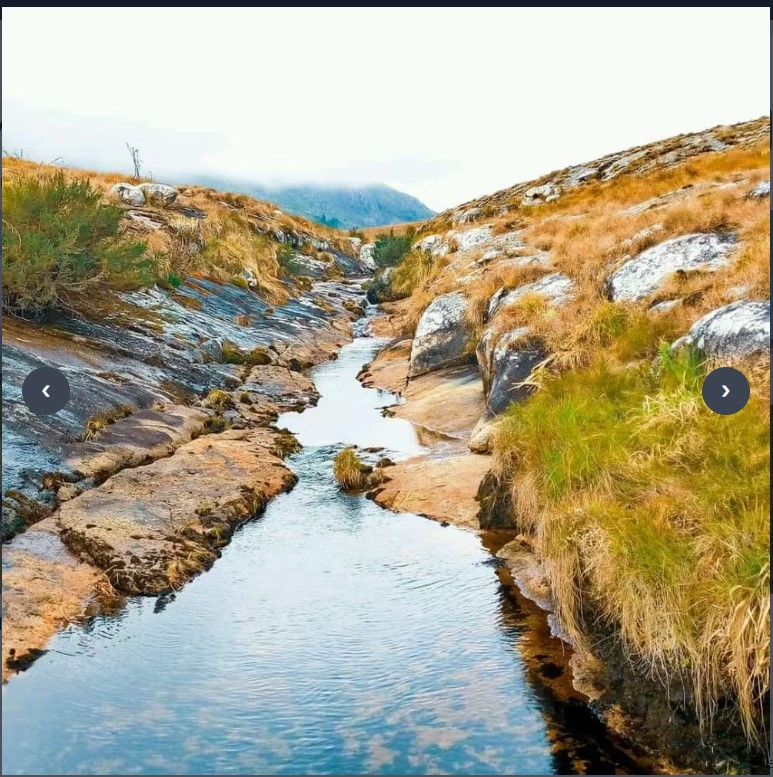

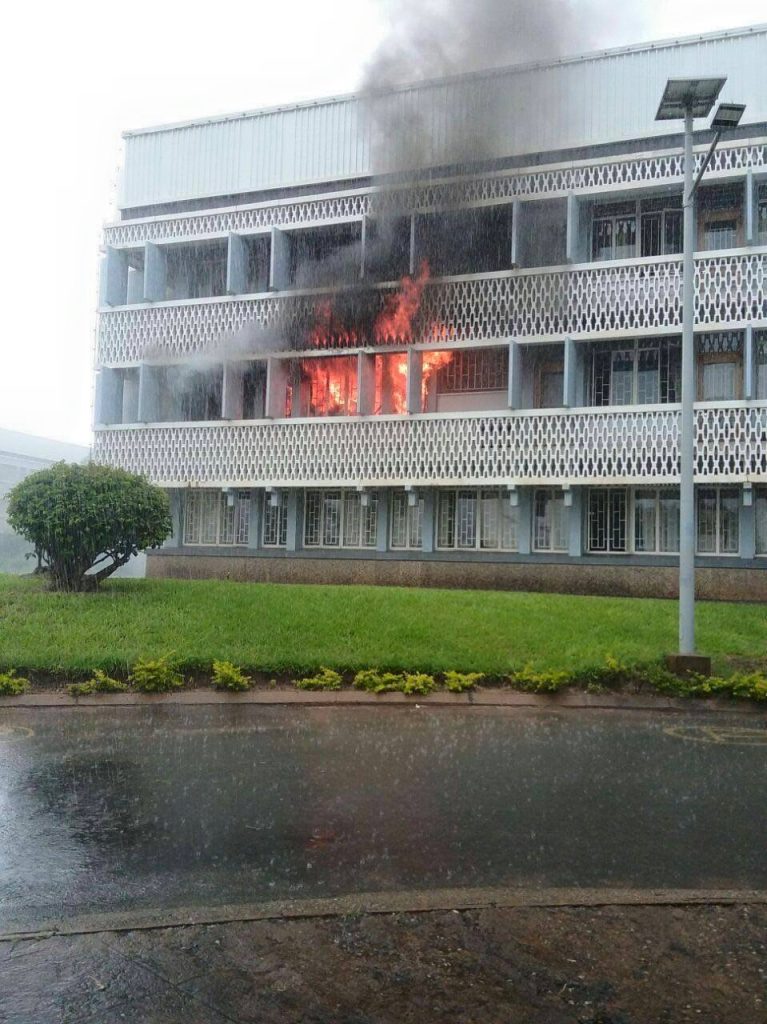
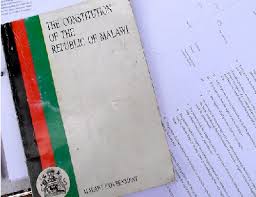
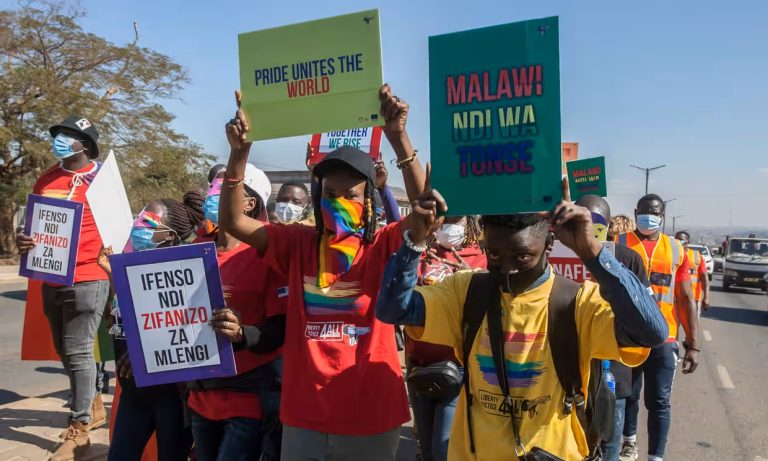
.jpg)

